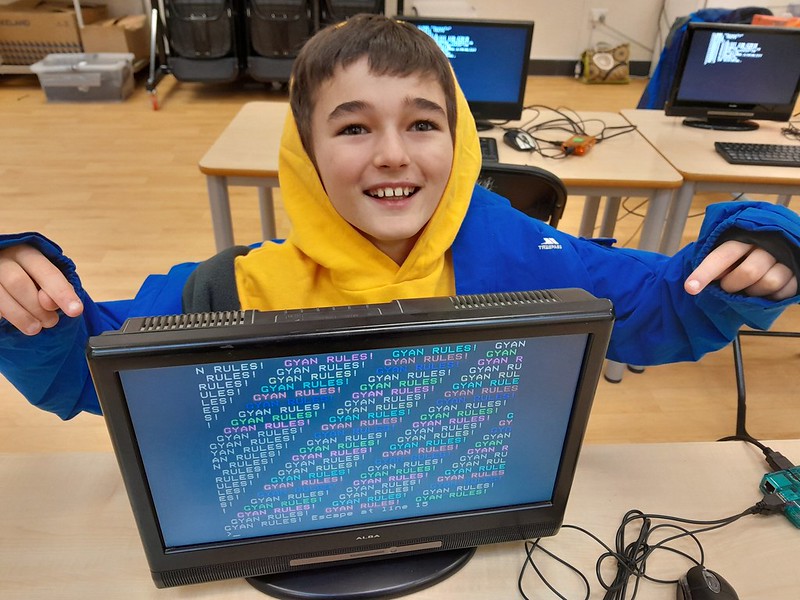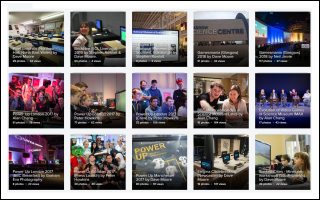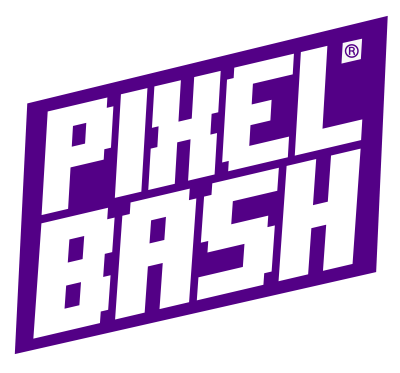Educraft Student’s Work
Please select event:
- Ellesmere Port STEAM Festival, National Waterways Museum (5th-8th March 2024)
- Parkside Primary School, Heathfield, East Sussex (28th-29th December 2023)
- Lancaster Road Primary School, Morecambe (28th-29th December 2023)
- St Marks CE Primary School, Brighton (19th-22nd December 2023)
- Marymount International School, London (24th November 2023)
- Mile Oak Primary School, North Portslade, Brighton (21st-24th August 2023)
- St Marks CE Primary School, East Brighton (15th-18th August 2023)
- Lancaster Road Primary School, Morecambe (14th-17th & 21st-24th August 2023)
- Grange Primary Academy, Gloucester (8th-11th August 2023)
- Baines Endowed VC School, Thornton-Cleveleys (Wyre) (7th-10th August 2023)
- Parkside Primary School, Heathfield, East Sussex (31st July-3rd August 2023)
- Marymount International School, London (20th June 2023)
- Parkside Primary School, Heathfield, East Sussex (13th-14th April 2023)
- Robinswood Primary Academy, Matson, Gloucester (11th-12th April 2023)
- Fibbersley Park Primary Academy, Willenhall, Walsall (3rd-6th April 2023)
- Lancaster Road Primary School, Morecambe (28th-30th December 2022)
- The Parish Centre, Rastrick (20th + 22nd December 2022)
- St Pauls Primary Academy, St Leonards-on-Sea, East Sussex (20th + 22nd December 2022)
- Robinswood Primary Academy, Matson, Gloucester (20th-21st December 2022)
- Moat Primary School, Matson, Gloucester (25th-26th August 2022)
- Parkside Primary School, Heathfield, East Sussex (23rd-24th August 2022)
- Centre Stage, Bexhill, East Sussex (17th-18th August 2022)
- Lancaster Road Primary School, Morecambe (26th July & 2nd August 2022)
- Holy Trinity Primary School, Halifax (19th April 2022)
- Hastings Library, East Sussex (13th-14th April 2022)
- Centre Stage, Bexhill, East Sussex (11th-12th April 2022)
- Centre Stage, Bexhill, East Sussex (16 February 2022).
Ellesmere Port STEAM Festival, National Waterways Museum (5th-8th March 2024)
PIXEL POWER – WEED KILLER (8/3) featuring games by Y6 at Our Lady Star of the Sea Catholic Primary School (Ben, Blake, Caitlin, Connie, Earl, Ellie, Harry, Kyla, Layla, Mason, Oliver, Owen, Parker, Pippa, Scarlet, Shreehith)
Play in Web Browser (jsbeeb) | Download DFS Disc Image
PIXEL POWER – CATTY CATERPILLAR (8/3) featuring games by Y5 at Alvanley & Manley Village School (Alex, Hugo, Isabel, Joey, Mason, Megan, Molly, Poppy, Scarlett, Will)
Play in Web Browser (jsbeeb) | Download DFS Disc Image
PIXEL POWER – DOWNHILL RACER (8/3) featuring games by Y6 at Parklands Primary School (Alfie, Ben, Codie, Elizabeth, Elsey, Elsie, Emily-May, James, Maisie, Nicola, Oliver, Regan, Riley, Zachary)
Play in Web Browser (jsbeeb) | Download DFS Disc Image
PIXEL POWER – DOWNHILL RACER (7/3) featuring games by Y5 at Our Lady Star of the Sea Catholic Primary School (Anaya, Azaylea, Bobby, Brooke, Esme, Finley, Logan, Luke, Lydia-Rose, Molly, Oliver, Theo, Thomas)
Play in Web Browser (jsbeeb) | Download DFS Disc Image
PIXEL POWER – CATTY CATERPILLAR (7/3) featuring games by Y5 at Our Lady Star of the Sea Catholic Primary School (Bella, Declyn, Eliana, Emily, Evie, Frankie, Max, Nengi, Reed, Rose, Seth, Tommy)
Play in Web Browser (jsbeeb) | Download DFS Disc Image
PIXEL POWER – CATTY CATERPILLAR (7/3) featuring games by Y5 at St Bernard’s RC Primary School (Brooke, Dakota, Dominik, Evelyn, Freya, Henry, Oliver, Reece, Theo, Tovia)
Play in Web Browser (jsbeeb) | Download DFS Disc Image
PIXEL POWER – WEED KILLER (6/3) featuring games by Y5 at St Joseph’s Primary School (Amelia, Arthur, Bella, Biya, Charlie, Daniel, Jonathan, Lois, Maria, Rachel, Tessa, Violet)
Play in Web Browser (jsbeeb) | Download DFS Disc Image
PIXEL POWER – CATTY CATERPILLAR (6/3) featuring games by Y5 at Brookside Primary School (Alisha, Betsie, Bonny, Brooke, Caolan, Dais, Elsie May, Jake, Lacey, Lilly, Munanashe, Neave, Roxie, Sarah, Taya, Tommie)
Play in Web Browser (jsbeeb) | Download DFS Disc Image
PIXEL POWER – DOWNHILL RACER (5/3) featuring games by Y5 at Wolverham Primary School (Amelia, Ayzer, Cal, Colt, Honey, Jacob, Jaxon Julien, London)
Play in Web Browser (jsbeeb) | Download DFS Disc Image
PIXEL POWER – CATTY CATERPILLAR (5/3) featuring games by Y5 at Our Lady of Pity RC Primary School (Ava, Ewan, Freddie, Grace-May, Isaac, Jacob, Jessica, Lauren, Malina, Rose, Sarah, Ted, Zoë)
Play in Web Browser (jsbeeb) | Download DFS Disc Image
PIXEL POWER – WEED KILLER (5/3) featuring games by Y4 at St Albans Primary School (Cleo, Corey, Daisy, Elizabeth, Freddie, Harley, Janessa, Leighton, Mia, Nuala, Zane)
Play in Web Browser (jsbeeb) | Download DFS Disc Image
PIXEL POWER – WEED KILLER (5/3) featuring games by Y6 at St Albans Primary School (Bella, Delilah, Eva, Farrah, Gracie, Heath, Isabel, Isla, Jonjamesh, Louis, Olivia, Pearl, Reece)
Play in Web Browser (jsbeeb) | Download DFS Disc Image
Parkside Primary School, Heathfield, East Sussex (28th-29th December 2023)
PIXEL DASH featuring games by Harry, Riley, Rufus, Aston, Barney, Logan, Leo, Jamie, Asher
Play in Web Browser (jsbeeb) | Download ADFS Disc Image
PIXEL POWER – CATTY featuring game designs by Alice, Annabel, Aston, Barney, Bertie, Ethan, Gracie, Harry, Hutch, Jamie, Leo, Liam, Logan, Misha, Ollie, Riley, Sam, Theo
Play in Web Browser (jsbeeb) | Download DFS Disc Image
PIXEL POWER – WEEDY featuring game designs by Alice, Annabel, Aston, Barney, Ethan, Gracie, Harry, Henry, Hutch, Jamie, Leo, Liam, Misha, Oli, Riley, Sam, Theo
Play in Web Browser (jsbeeb) | Download DFS Disc Image
PIXEL POWER – ALIEN INVADERS featuring game designs by Aston, Barney, Gracie, Jamie, Riley
Play in Web Browser (jsbeeb) | Download DFS Disc Image
Lancaster Road Primary School, Morecambe (28th-29th December 2023)
PIXEL POWER (Catty, Weedy & Alien Invaders) featuring games by Dylan (x2), Hartley, Izzy, Maisie, Mason, Phenix (x3), Scarlett (x2), Yura (x2)
Play in Web Browser (jsbeeb) | Download DFS Disc Image
St Marks CE Primary School, Brighton (19th-22nd December 2023)
PIXEL DASH (22/12) featuring games by Leon, Raphi, Remy, Volodymyr
Play in Web Browser (jsbeeb) | Download ADFS Disc Image
PIXEL POWER – CATTY (21/12) featuring game designs by Charlie, Georgii, Gino, Jaiden, Leon, Milo, Raphi, Remy, Vinnie, Volodymyr
Play in Web Browser (jsbeeb) | Download DFS Disc Image
PIXEL POWER – ALIEN INVADERS (20/12) featuring game designs by Charlie, Georgii, Jake, Libby, Rayan, Vinnie, Volodymyr
Play in Web Browser (jsbeeb) | Download DFS Disc Image
PIXEL POWER – WEEDY (19/12) featuring game designs by Ada, Ahmet, Bella, Deema, Dylan, Erin, Ilona, Jet, Josh, Leo, Leon, Modibo, Raphi, Rayan, Remy, Seth, Tyler, Vinnie, Volodymyr, Yousif
Play in Web Browser (jsbeeb) | Download DFS Disc Image
Marymount International School, London (24th November 2023)
PIXEL DASH featuring game designs by Leila, Emily, Danielle, Lia, Inaara, Erin, Flo, Candy, Emma, Akari, Malak, Preet, Egan, Evie, Katy, Suki, Ines, Melina
Play in Web Browser (jsbeeb) | Download ADFS Disc Image
Mile Oak Primary School, North Portslade, Brighton (21st-24th August 2023)
PIXEL DASH featuring game designs by Theo, Hayden, Mel, Hattie, Louis, CJ, Sean, Hannah, Aihem, Morragan, Kitty, Warren, Noah, Leyla, Albie, Eddie, Mahan, Rhett, Alicia, Joshua, Henry, Max, Rex, Woody, Reece
Play in Web Browser (jsbeeb) | Download ADFS Disc Image
BLITZ featuring game designs by Aihem, Joshua, Louis, Mahan, Noah, Owen, Reece, Rhett, Theo
Play in Web Browser (jsbeeb) | Download DFS Disc Image
St Marks CE Primary School, East Brighton (15th-18th August 2023)
PIXEL DASH featuring game designs by Noah JJ, Shahin, Sam, Marley, Charlie, Jaiden, Jake, Bella, Chris, Joash, Noah Z, Dexter, Miko, Luke, Tamsin, Ada, Frankie, Artin, Violet, Ian, Dexter, Dexter T, Finton, Candy
Play in Web Browser (jsbeeb) | Download ADFS Disc Image
Lancaster Road Primary School, Morecambe (14th-17th & 21st-24th August 2023)
PIXEL JAM: MORECAMBE – SUMMER 2023
Play in Web Browser
Grange Primary Academy, Gloucester (8th-11th August 2023)
PIXEL JAM: GLOUCESTER – SUMMER 2023
Play in Web Browser
Baines Endowed VC School, Thornton-Cleveleys [Wyre] (7th-10th August 2023)
PIXEL DASH featuring game designs by Tyler, Rufus (x2), Poppy, Charlie, Aled, Connor, Harry, Bradley, Declan, Isaac, Alexus, Vienna, Lacey, Alfie
Links coming mid-January!
PIXEL POWER (07-08 Aug) featuring game designs by Bradley, Charlie (x3), Lacey (x2), Tyler (x3)
Play in Web Browser (jsbeeb) | Download DFS Disc Image
Parkside Primary School, Heathfield, East Sussex (31st July-3rd August 2023)
PIXEL JAM: HEATHFIELD – SUMMER 2023
Play in Web Browser
Marymount International School, London (20th June 2023)
BLITZ featuring game designs by Aemilia, Aida, Alex, Alia, Caca, Ceg, Ellen, Emilia, Emma, Flossie, Frida, Iroha, Isla, Izzy, Kyoka, Lily, Lois, Mayo, Vega, Yara
Play in Web Browser (jsbeeb) | Download DFS Disc Image
ALIEN INVADERS featuring game designs by Aemilia, Aida, Alex, Alia, Caca, Ceg, Ellen, Emilia, Emma, Flossie, Frida, Iroha, Isla, Izzy, Kyoka, Lily, Lois, Mayo, Vega, Yara
Play in Web Browser (jsbeeb) | Download DFS Disc Image
Parkside Primary School, Heathfield, East Sussex (13th-14th April 2023)
PIXEL DASH featuring game designs by Lily & Amelia, Zhenya & Ivan, Leo, Barney & Aston, Sam & Bertie, Chloe, Cayden & Kai, Russell & Brandon, Jake, Milana / Vera / Yana, Logan, Courtney, Riley & Asher, Dylan & Kaydan
Play in Web Browser (jsbeeb) | Download ADFS Disc Image
BLITZ featuring game designs by Russ, Caoimhe, Sam, Davie
Play in Web Browser (jsbeeb) | Download DFS Disc Image
Robinswood Primary Academy, Matson, Gloucester (11th-12th April 2023)
PIXEL DASH featuring game designs by Jack, Jasper, Xanthi, Mason & Noah H, Euan, Rabid Rabbit Run, Klim, Tabitha & Gracie, Harvey, Noah C & Jager, Oscar & Felix, Jacob, Izzy, Iri, Alex, Ilori, Luca, James & Hakeem, Hudson
Play in Web Browser (jsbeeb) | Download ADFS Disc Image
BLITZ featuring game designs by Gracie, Harvey, Jack & Charlie, Lahkye, Tabitha
Play in Web Browser (jsbeeb) | Download DFS Disc Image
ALIEN INVADERS featuring game designs by Harvey, Lahkye, Tabitha
Play in Web Browser (jsbeeb) | Download DFS Disc Image
Fibbersley Park Primary Academy, Willenhall, Walsall (3rd-6th April 2023)
PIXEL DASH featuring game designs by Rosie, Noah, Rossi, Alfie, Lewis (x2), Leah, Paul, Jermaine, Ellis, Samuel, Dean
Play in Web Browser (jsbeeb) | Download ADFS Disc Image
BLITZ (03/04) featuring game designs by Alfie & Kenzi, Caitlin & Lewis, Dean, Ellis, Leah, Mick, Noah & Jermaine, Paul, Rossi, Samuel, Zafyah & Zion
Play in Web Browser (jsbeeb) | Download DFS Disc Image
ALIEN INVADERS (03/04) featuring game designs by Alfie, Caitlin, Caitlin & Lewis, Leah, Lewis, Mick, Noah & Jermaine, Paul & Kensi, Rossi, Samuel, Zion & Zafyah
Play in Web Browser (jsbeeb) | Download DFS Disc Image
Lancaster Road Primary School, Morecambe (28th-30th December 2022)
ALIEN INVADERS (30/12) featuring game designs by Angel, Bella, Byron, Dylan, Gyan, Hartley, Maisie, Max
Play in Web Browser (jsbeeb) | Download DFS Disc Image
BLITZ (29/12) featuring game designs by Angel, Bella & Caitlin, Dexter, Dylan, Freddie, Gyan, Isaac, Ivy, Kaylub, Maisie, Max, Oscar & Byron, Tommy, Zac
Play in Web Browser (jsbeeb) | Download DFS Disc Image
SANTA’S SUPER SPRINT (28/12) featuring work by Angel, Bella, Byron, Caitlin, Connie, Dylan, Freddie, Gyan, Hartley, Isaac, Kaylub, Maisie, Max, Oscar, Tommy, Zac
Play in Web Browser (jsbeeb) | Download ADFS Disc Image | View Selected Playthrough Videos
The Parish Centre, Rastrick (20th+22nd December 2022)
BLITZ (20/12) featuring game designs by Alexander, Alice, Callait, Erin, Eva, Freddie, Hiraani, Kyle, Matias, Oliver, Yvie
Play in Web Browser (jsbeeb) | Download DFS Disc Image
St Pauls Academy, St Leonards (20th+22nd December 2022)
BLITZ (20+22/12) featuring game designs by Alex, Ellie (x2), Embla, Evie, Izzy, Jack, Jessie, Leo, Lexi, Samuel, Toby, Tyler, Ben, Bertie, Marlow, Ted
Play in Web Browser (jsbeeb) | Download DFS Disc Image
Robinswood Academy, Matson, Gloucester (20th-21st December 2022)
BLITZ (21/12) featuring game designs by Addison, Ethan, Geri, Hakeem, Isobel, Jacob, James, Jenson, Mason, Nathaniel, Noah
Play in Web Browser (jsbeeb) | Download DFS Disc Image
SANTA’S SUPER SPRINT (20/12) featuring game designs by: Addison, Ethan, Euan, Geri, Iri, Izzy, James, Luca, Mason, Michal, Stanley
Play in Web Browser (jsbeeb) | Download ADFS Disc Image | View Selected Playthrough Videos
Moat School, Matson, Gloucester (25th-26th August 2022)
ALIEN INVADERS (26/8) featuring game designs by: Amelia, Charlie, Hudson, Jacob, Jakub, Luca, Mason, Noah C, Sapphire, Toby.
Play in Web Browser (jsbeeb) | Download DFS Disc Image
BLITZ (26/8) featuring game designs by Amelia, Charlie, Hudson, Jacob, Jakub, Luca, Mason, Noah C, Sapphire, Toby
Play in Web Browser (jsbeeb) | Download DFS Disc Image
BLITZ (25/8) featuring game designs by: Adriel, Alistair, Amelia, Braidy, Euan, Felix, Hakeem, Harry & Luca, Harry, Luca, Mason, Noah C, Noah H, Oscar, Sapphire, Stan, Toby
Play in Web Browser (jsbeeb) | Download DFS Disc Image
Parkside Primary School, Heathfield, East Sussex (23rd-24th August 2022)
EXTRAS (24/8) featuring a SHAPES demo that Russell programmed; ‘RANDOM WALK’ and STARBURST (Fireworks) routines that tutor Bryan programmed together with some of the students; plus two extra versions of the BLITZ game, the first features the STARBURST fireworks routine upon a successful landing, the second features a scoring system that is proportional to the size of the buildings.
Play in Web Browser (jsbeeb) | Download DFS Disc Image
BLITZ (24/8) featuring game designs by: Aleena, Aston, Barney, Hiraani, Ivan, James, Liam S, Liam T, Malachi, Sasha, Yevhenlia, Zayyan. Plus Gordon and Sam.
Play in Web Browser (jsbeeb) | Download DFS Disc Image
BLITZ (23/8) featuring game designs by: Abbigail, Abdullah, Ashton, Dan, Ethan, Jamie, Liam, Oliver, PJ, Russell (x2), Sophie
Play in Web Browser (jsbeeb) | Download DFS Disc Image
Centre Stage, Bexhill, East Sussex (17th-18th August 2022)
BLITZ (18/8) featuring game designs by: Ellie, Ethan, Gabrielle, Immy, Katherine, Kenna, Matthew, Natalie, Sophie, Ysabella
Play in Web Browser (jsbeeb) | Download DFS Disc Image
BLITZ (17/8) featuring game designs by: Charlie (x2), Cyrus, Darcie, Elliott, Faith, Grace, Harley, Jaxon, Logan, Nyla, Orion, Oscar, River, Stanley, Steve.
Play in Web Browser (jsbeeb) | Download DFS Disc Imagee
Lancaster Road Primary School, Morecambe (26th July & 2nd August 2022)
BLITZ featuring game designs by: Alice, Amber, Ben, Dante, Domonic, Hartley, Lucas H, Mia, Oscar
Play in Web Browser (jsbeeb) | Download DFS Disc Image
Holy Trinity Primary School, Halifax (19th April 2022)
BLITZ featuring game designs by: Aahil, Ara, Bilal, Eesa, Ethan, Hassan, Hiraani, Inaya, Kushal, Mansoor, Sara, Subhan, Zakaria, Zarah
Play in Web Browser (jsbeeb) | Download DFS Disc Image
Hastings Library, East Sussex (13th-14th April 2022)
BLITZ (14/4 – Group A) featuring game designs by: Ayla, Barnaby, Brandon, Hudson, Isaac, Jacob, Lacey, Leo, Robin, Xander, Zak
Play in Web Browser (jsbeeb) | Download DFS Disc Image
BLITZ (14/4 – Group B) featuring game designs by: Barry, Belle, Brody, Callum, Charlie, Ren, Sam, Toby, Violet
Play in Web Browser (jsbeeb) | Download DFS Disc Image
BLITZ (14/4 – Group C) featuring game designs by: Fin, Joey, Linden, Olie, Oliver, Ralphy, Rowan
Play in Web Browser (jsbeeb) | Download DFS Disc Image
BLITZ (13/4 – Group A) featuring game designs by: Alfie, Leo, Lucian, Matilda, Otto, Rafferty, Rex
Play in Web Browser (jsbeeb) | Download DFS Disc Image
BLITZ (13/4 – Group B) featuring game designs by: Daisy, Darren, Jack, Noah, Poppy, Steven, Tyler
Play in Web Browser (jsbeeb) | Download DFS Disc Image
Centre Stage, Bexhill, East Sussex (11th-12th April 2022)
ALIEN INVADERS (12/4) featuring game designs by: Abi, Aida, Darcie, Ellie, Jacob, Lilly, Riley
Play in Web Browser (jsbeeb) | Download DFS Disc Image
BLITZ (11/4) featuring game designs by: Damon, Harvey, Issac, Jennifer, Josh, Kylan, Lilly (x2), Lily, Marlow, Nadine, Pelin, Riley (x2), River, Rivers, Rudy, Sophie, Tristan
Play in Web Browser (jsbeeb) | Download DFS Disc Image
Centre Stage, Bexhill, East Sussex (16th February 2022)
BLITZ designed by Abi
Play in Web Browser (jsbeeb) | Download DFS Disc Image



